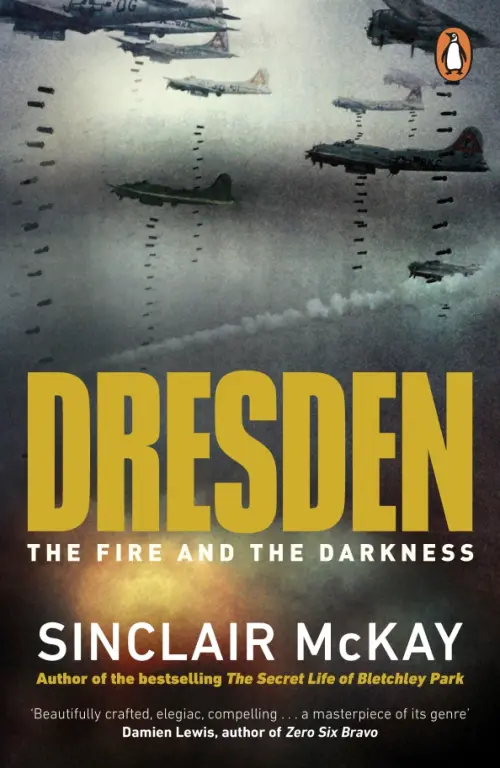В феврале 1945 году произошла бомбардировка Дрездена, прозванного «Флоренцией на Эльбе». Каждые семь с половиной секунд на город сбрасывали взрывные снаряды весом более 1000 фунтов. Погибло около 25 тысяч человек. Но был ли Дрезден на самом деле военной целью?
В книге Dresden. The Fire and the Darkness Синклера Маккея представлена история города и самой бомбардировки, расписанная поминутно – от первых взрывов до языков пламени, достигающих мили в высоту, пока горячий воздух выжигал легкие всем, кто становился у него на пути.
Мы познакомимся с самыми разными персонажами: еврейкой, которая считала, что английские бомбы были даром небесным; писателем Куртом Воннегутом, который сравнивал выжженные улицы уничтоженного города с поверхностью Луны; и с пятнадцатилетним Уинфредом Бьельсом, который, помогая беженцам, хотел лишь поскорее вернуться к своей коллекции марок. Он еще не знал, что не успеет.
Книга на английском языке.
A Times/Sunday Times Book of the Year
'Powerful... there is rage in his ink. McKay's book grips by its passion and originality. Some 25,000 people perished in the firestorm that raged through the city. I have never seen it better described' Max Hastings, Sunday Times
In February 1945 the Allies obliterated Dresden, the 'Florence of the Elbe'. Explosive bombs weighing over 1,000 lbs fell every seven and a half seconds and an estimated 25,000 people were killed. Was Dresden a legitimate military target or was the bombing a last act of atavistic in a war already won?
From the history of the city to the attack itself, conveyed in a minute-by-minute account from the first of the flares to the flames reaching almost a mile high - the wind so searingly hot that the lungs of those in its path were instantly scorched - through the eerie period of reconstruction, bestselling author Sinclair McKay creates a vast canvas and brings it alive with touching human detail.
Along the way we encounter, among many others across the city, a Jewish woman who thought the English bombs had been sent from heaven, novelist Kurt Vonnegut who wrote that the smouldering landscape was like walking on the surface of the moon, and 15-year-old Winfried Bielss, who, having spent the evening ushering refugees, wanted to get home to his stamp collection. He was not to know that there was not enough time.
Impeccably researched and deeply moving, McKay uses never-before-seen sources to relate the untold stories of civilians and vividly conveys the texture of contemporary life. Dresden is invoked as a byword for the illimitable cruelties of war, but with the distance of time, it is now possible to approach this subject with a much clearer gaze, and with a keener interest in the sorts of lives that ordinary people lived and lost, or tried to rebuild.
Writing with warmth and colour about morality in war, the instinct for survival, the gravity of mass destruction and the manipulation of memory, this is a master historian at work.
'Churchill...
У этого товара нет ни одного отзыва. Вы можете стать первым.



